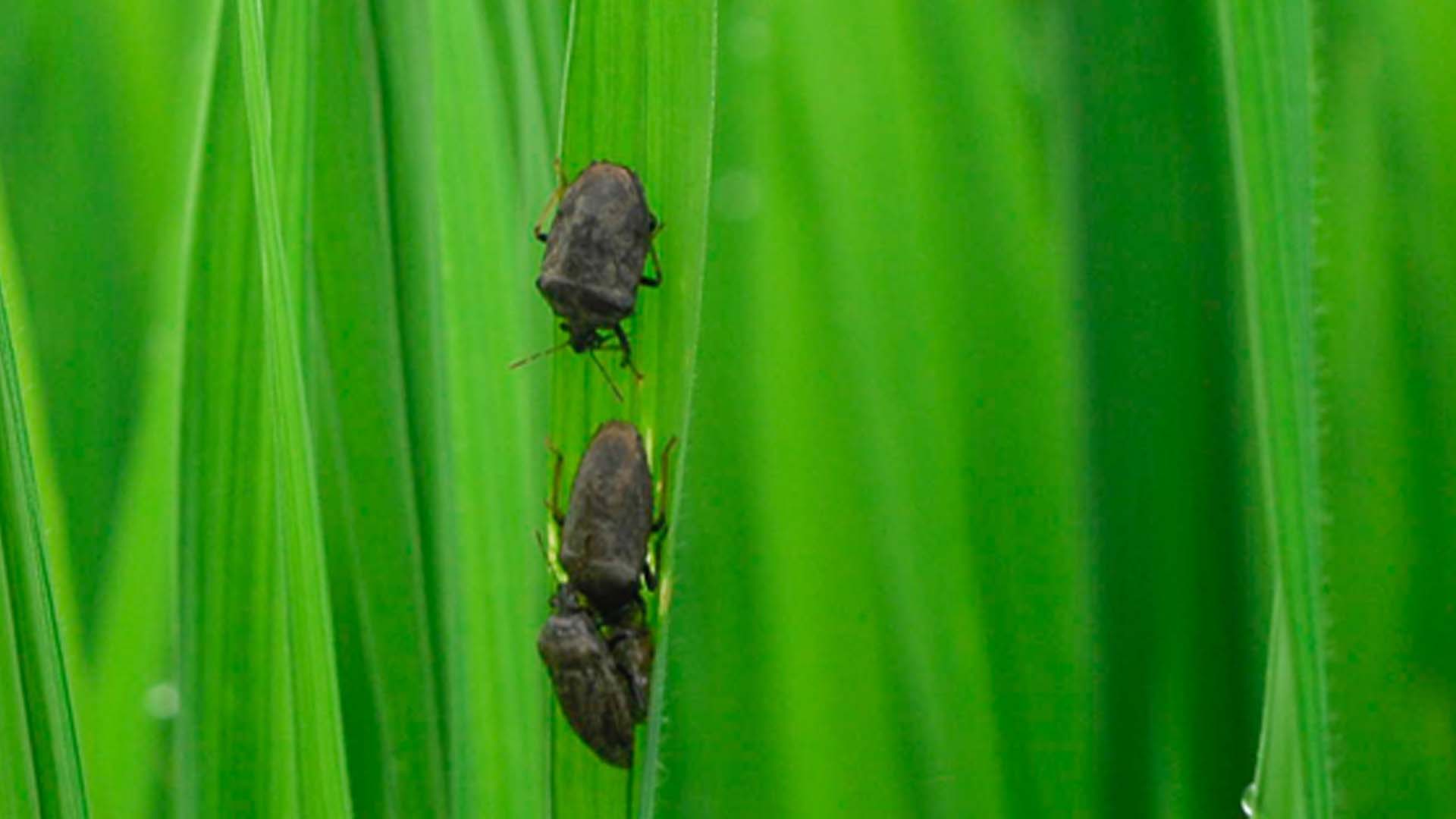With the recent reports on swarms of rice black bugs (RBB) seen in parts of Regions II and III, Genaro S. Rillon, crop protection expert from the Department of Agriculture-Philippine Rice Research Institute (DA-PhilRice), explained that the insects are migrating populations looking for food, habitat, and places to lay their eggs.
RBB is a sap-feeding insect that attacks rice plants in almost all stages of growth. It is most destructive from maximum tillering to ripening of rice.
Rillon said that RBB flight patterns are affected by the lunar cycle and that catches are high five days before and after full moon. He advised farmers who observe occurrences in their field to do light trapping during this time.
“Since RBBs are highly proteinaceous, collect, dry, and feed them to ducks, chicken, and fish. They may also be burned or buried,” he recommended.
Rillon said that RBBs naturally die if there are no rice crops and other suitable host plants in the area.
“This insects’ mass flight activity is a reproductive behavior that increases when there is no food. There is less migration and dispersal if rice plants and other suitable host plants are readily available in the field,” he explained.
He said the insects are in flight because rice stubbles, which serve as RBB’s possible habitat, are destroyed as the farmers start land preparation.
Fallow period, or allowing the land to rest for a month, limits RBB’s food and habitat; reducing insect populations.
As a management strategy, farmers who have established rice crops may increase the water level up to 8-10 cm for 1-2 days to prevent the insects from living on the plants’ base and prevent eggs from hatching.
“Farmers may also spray Metarhizium anisopliae that they can get from the Regional Crop Protection Center (RCPC),” he said.
Metarhizium anisopliae is a fungus that attacks black bugs and can be an efficient biocontrol agent.
DA-PhilRice advised farmers to observe RBB management practices from planting to harvesting to avoid massive damage the insects may cause.
Farmers are urged to conserve natural enemies like Metarhizium anisopliae (amag) and Telenomus triptus (maliit na kulisap) as they can reduce RBB population without using pesticide.
The Institute emphasized on the importance of always keeping the rice field clean because weeds serve as alternate hosts of RBB and their presence in the field could serve as food for the insects.
During planting time, farmers are advised to practice synchronous planting and raise ducks, which feed on RBB, and then release them on the field before planting season. Ducks may also be released in the field if the water is scarce.
Come harvest time, farmers are encouraged to install light traps during the night after harvest more RBB adults could be collected, cut up to the base of the crops to destroy RBB habitat and food source, and plow and water the field immediately after harvest.
For more information on RBB management, call or text DA-PhilRice’s Text Center (0917 111 7423), message our Facebook page, or visit Pinoy Rice Knowledge Bank website: https://bit.ly/manageRBB.







